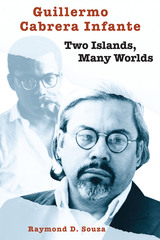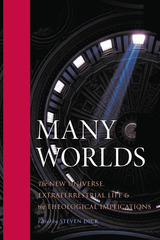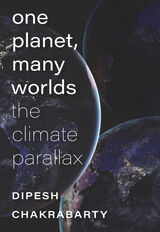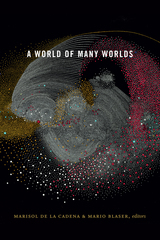
A native Cuban who has lived in London since 1966, Guillermo Cabrera Infante is, in every sense, a multilingual and multicultural author. Equally at ease in both Spanish and English, he has distinguished himself with daring and innovative novels, essays, short stories, and film scripts written in both languages. His work has won major literary awards in France, Italy, and Spain, as well as a Guggenheim fellowship in the United States.
This biography is the first comprehensive exploration of the life and works of Guillermo Cabrera Infante. Drawing on wide-ranging interviews with the author and his family and friends, as well as extensive study of both published and unpublished works, Raymond D. Souza creates an intimate portrait of Cabrera Infante and the cultural and political milieus that shaped his writing, including Three Trapped Tigers (Tres tristes tigres), View of Dawn in the Tropics (Vista del amanecer en el trópico), Infante's Inferno (La Habana para un Infante difunto), Holy Smoke, A Twentieth Century Job (Un oficio del siglo XX), Writes of Passage (Así en la paz como en la guerra), and Mea Cuba.

In Many Worlds, renowned scientists in fields from physics to astronomy discuss the possibility of a cosmic evolutionary process that guides not only our universe, but other planets and universes as well. Physicist and author Paul Davies observes that “if it turns out to be the case that the universe is inherently bio-friendly, then the scientific, theological, and philosophical implications will be extremely significant.”
Many Worlds first focuses on what lessons might be learned from the latest knowledge of the origin and evolution of life. After establishing a well-grounded relationship between science and religion, authors such as Arthur Peacocke and John Leslie evaluate the intricate configuration of events that must occur to create a dynamic and chemically enriched environment capable of not only supporting life, but evolutionary processes as well. The final section addresses the provocative question of extraterrestrial life. What we may find could drastically change our relation to the universe and our creator.
As we reflect on the possibilities that the universe presents, author and contributor Christian de Duve aptly states, “Many myths have had to be abandoned. But mystery remains, more profound and beautiful than ever before, a reality almost inaccessible to our feeble human means.” Is our existence part of a divine scheme ingenuously designed to support life, or is it an extraordinary chain of accidents that culminate in a life-permitting environment? The scientific advancements of the past century cannot help but capture the imagination and inspire renewed hope for the future. This volume will add dimension and insight to these yet unanswered questions.

Climate change represents a deep conundrum for humans. It is difficult for humans to give up the unequal and yet accelerating pursuit of a good life based on an insatiable appetite for energy sourced mainly from fossil fuel. But the same pursuit, scientists insist, damages the geobiological system that supports the existence of interrelated forms of life, including ours, on this planet. The planet, seen thus, is one. The global sway of financial and extractive capital connects humans technologically, but they remain divided along multiple axes of inequality. Their worlds are many and their politics still global rather than planetary. In the narrative presented here, Chakrabarty continues to explore the temporal and intellectual fault lines that mark the collapse of the global and the planetary in human history.

Contributors. Mario Blaser, Alberto Corsín Jiménez, Déborah Danowski, Marisol de la Cadena, John Law, Marianne Lien, Isabelle Stengers, Marilyn Strathern, Helen Verran, Eduardo Viveiros de Castro
READERS
Browse our collection.
PUBLISHERS
See BiblioVault's publisher services.
STUDENT SERVICES
Files for college accessibility offices.
UChicago Accessibility Resources
home | accessibility | search | about | contact us
BiblioVault ® 2001 - 2024
The University of Chicago Press









